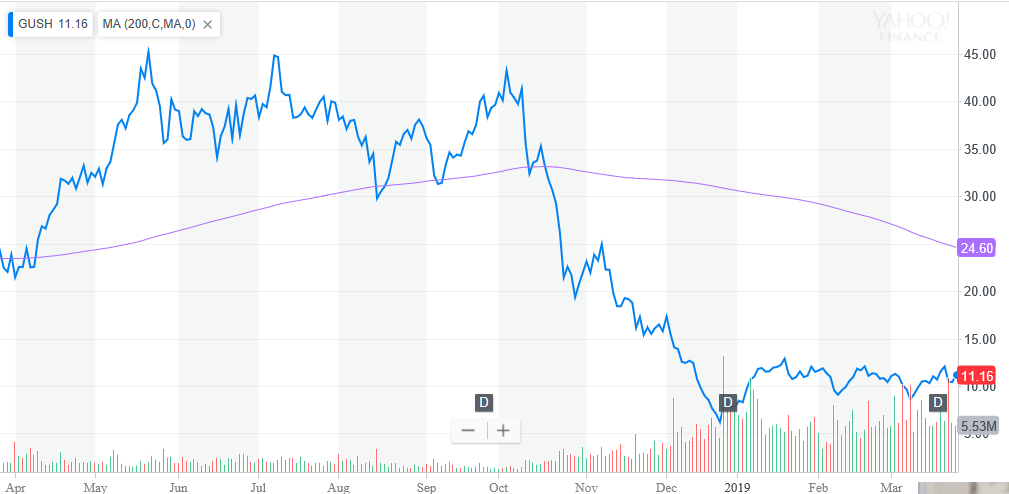Oil prices crossed the $60 mark on Tuesday, providing the wind in the sails for the Direxion Daily S&P Oil & Gas Exp. & Prod. Bull 3X Shares (NYSEArca: GUSH), which rose over 7 percent.
Concerns for weak demand of oil was offset by Organization of the Petroleum Exporting Countries (OPEC) supply cuts and experts expecting U.S. inventories to be lesser than expected. U.S. sanctions on Iran and Venezuela are also curbing supply.
WTI Crude snuck past the $60 per barrel level before dropping back down to $59.79 as of 1:00 p.m. ET.
“It appears that concerns about demand have taken something of a back seat,” Commerzbank analyst Carsten Fritsch said. “Instead, market participants are focusing on the tight supply situation again.”
GUSH is trading well below its 200-day moving average after oil’s serendipitous run up through most of 2018. However, the ETF is up 33.59 percent year-to-date.
“So far, demand concerns have not proven too much of a headwind,” analysts at JBC Energy wrote.

Fears of a global economic slowdown are also weighing on the minds of oil traders. After the U.S. central bank kept interest rates unchanged last week, Federal Reserve Chairman Jerome Powell said that “we’ve noted some developments at home and around the world that bear our close attention.”
That dovishness has translated into more cautious investors who are unwilling to dial up the risk with respect to capital allocation. A global economic slowdown could also keep oil prices in check with the prospect of weaker demand.
“There’s lots of angst about global economic growth. That’s understandable because it has been slowing significantly since early 2018,” said Ed Yardeni, president and chief investment strategist at Yardeni Research. “Furthermore, we can all observe that ultra-easy monetary and debt-financed fiscal policies aren’t as stimulative as policymakers have been hoping.”
Last Friday, fears of a global economic slowdown saw the Dow fall 460 points. Nonetheless, other economic indicators like a low unemployment level are preventing analysts from sounding the alarm on a forthcoming recession.
“Recession risks have risen to the highest since 2008,” said Ole Hansen, head of commodity strategy at Saxo Bank.
For more market trends, visit ETF Trends.








